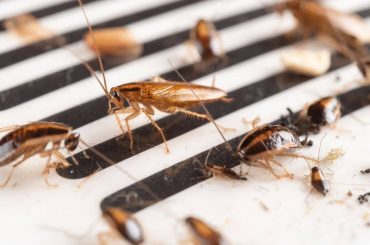Mosquitoes are a familiar summertime nuisance that humans have battled for eons. But what about our feline friends – do mosquitoes bite cats as well? As a cat owner, you may have noticed mosquitoes buzzing around your pet when outside. So how vulnerable are cats to these blood-sucking insects?

Why Mosquitoes Bite
Before examining their effects on cats, it’s helpful to understand why mosquitoes bite in the first place. These insects feed on the blood of humans and animals to obtain protein for developing their eggs. Only female mosquitoes bite, needing the protein boost to lay eggs.
Mosquitoes use their long, pointed mouthparts called proboscises to pierce skin and draw blood. They locate targets through detecting carbon dioxide, body heat and chemical cues emitted from the skin. Any warm-blooded animal that gives off these signals is fair game.
Factors That Attract Mosquitoes to Cats
Like humans, cats give off cues that attract mosquitoes looking for their next blood meal:
- Body Heat – A cat’s normal body temperature of 101-102°F makes them stand out from cooler surroundings. Mosquitoes hone in on this heat signature.
- Carbon Dioxide – With each breath in and out, cats release CO2 gas. Mosquitoes can detect CO2 from up to 150 feet away.
- Scent – Chemicals in a cat’s skin and fur provide inviting scents to mosquitoes searching for hosts.
- Movement – A frisky, active cat makes for a moving target that attracts mosquito attention.
- Color – Mosquitoes use vision to locate hosts from up to 30 feet away. A cat’s dark fur stands out from lighter surroundings.
Do Mosquitoes Prefer Biting Cats or Humans?
MOSQUITOES DO BITE CATS, BUT HUMANS ARE THEIR PREFERRED HOSTS. Here’s why humans make for more enticing targets:
- Greater body mass provides larger surface area for biting.
- Humans emit more heat, CO2 and scent cues that attract mosquitoes.
- People’s lack of fur makes biting easier.
- Human skin has less fur to navigate and offers an easier piercing surface.
So mosquitoes will readily bite cats when present, but they likely go for the nearest human first. Cats’ smaller bodies and furry coats make them slightly less desirable targets.

Signs Mosquitoes Have Bitten Your Cat
Wondering if mosquitoes have been treating your cat as an appetizer? Look for these signs:
- Excessive scratching or licking – Itchy mosquito bites provoke scratching and licking at the bite site.
- Hair loss – Repeated scratching and licking leads to bald patches and hair loss where bites occurred.
- Scabs and sores – Bites may appear as red, raised scabs that bleed and scab over due to scratching.
- Skin irritation – Bites cause swollen, itchy welts on the skin that may become infected.
- Restlessness – Discomfort from bites makes cats antsy and preoccupied with the urge to scratch.
If you spot any of these symptoms frequently after your cat has been outside, mosquitoes may be snacking on your pet.
Health Risks of Mosquito Bites for Cats
Beyond just being a nuisance, mosquito bites pose a few potential health concerns for cats:
- Allergic reactions – Some cats may be allergic to proteins in mosquito saliva, causing more swollen, painful reactions.
- Skin infections – Excessive scratching and damaged skin from bites allow bacterial infections to develop.
- Disease transmission – Mosquitoes can transmit feline heartworm disease through bites.
- Anemia – In rare cases, young kittens or small cats can become anemic from blood loss from frequent biting.
These risks are relatively minimal for most cats. But kittens, elderly cats or those with compromised immune systems may suffer more from mosquito bites.

Protecting Your Cat from Mosquitoes
If mosquitoes are making your cat miserable, here are some tips to reduce bites:
- Use veterinarian-approved mosquito repellents formulated for cats when going outside. Avoid human repellent sprays.
- Choose natural repellents with ingredients like citronella, lemon eucalyptus or tea tree oil. Avoid DEET products.
- Put a few drops of essential oils like lavender, peppermint or lemongrass on your cat’s collar to help deter mosquitoes.
- Limit time outdoors during dawn and dusk when mosquitoes are most active.
- Make sure your cat is up-to-date on heartworm preventative medication prescribed by your vet.
- Use EPA approved mosquito control and fogging products around your home’s perimeter.
- Replace old birdbaths and fill in puddles to eliminate mosquito breeding grounds.
- Keep your cat indoors and install mosquito screens on windows and doors to limit exposure.
With some diligent prevention, you can let your cat enjoy time outside mosquito-free and avoid the health hazards posed by bites. Don’t allow pesky mosquitoes to make your feline friend their next meal.
Read Next: The Ultimate Guide to Mosquito Larvicide: Keeping Your Home Mosquito-Free





